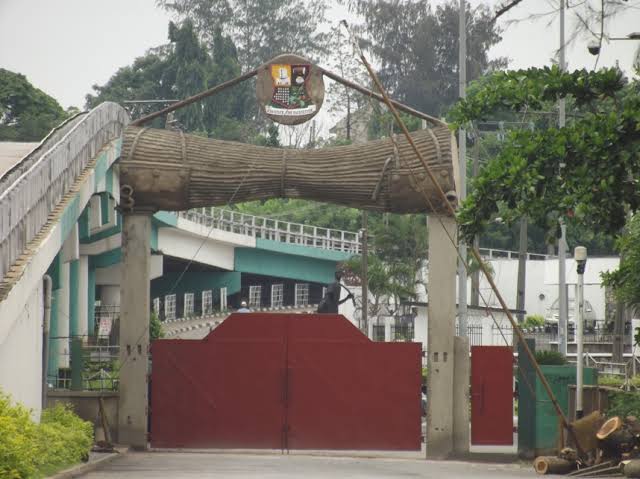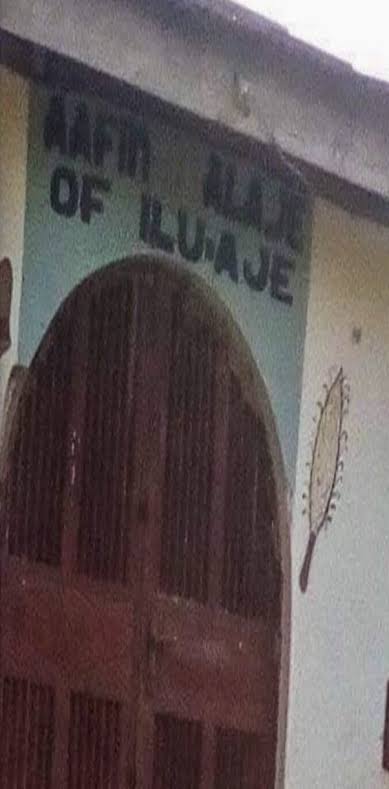A town of witches is a community on your way to Oyo, just behind Fiditi, it’s called “Ilu Ajẹ”. Which literally, translates to “Town of Witches”.
Ilu Aje is a relatively large agrarian community with vast lands located between Ilora and Jobele towns in the Afijio Local Government Area of Oyo State. Semantically, “Ilu Aje” is literally a town of prosperity in sales or business transaction.
However, history bequeathed it with a weird homophonic nomenclature of “Ilu Aje” (Town of Wītches) following the intervention of Akinyolu, an herb.alist (Ifa diviner) from the town, who cast a divination for a làte Alaafin regarding a Prince of his who was missing.
In the late 80s, there used to be a sign board in Fiditi that pointed to the path to the village, the signboard had the inscription :
“WAY TO ILU AJẸ, HOME OF SCIENCE!”.
Lots of people used to fèar indigenes of Ilu Ajẹ because it was said that every man in Ilu Ajẹ is born of a wītch, and every woman in ilu Ajẹ is a wītch!
But that is not the case…
HOW THE NAME WAS DERIVED
Some sources claim that it was when Alaafin Ladigbolu was on the throne, while some claim that it was when Alaafin Adeyemi II; the father of the incumbent Alaafin, Adeyemi III was on the throne.
A king’s son got missing ke? Infact, scrap it, Alaafin of Oyo during Oyo-Ile era (old Oyo empire) was not a king, he was an Emperor! No, a dèity!

Even up till date Alaafin of Oyo’s power is paramount.
Dea.th the father, dèath the mother, second only in command to the g0ds!
When the son of such an entity gets missing, of course it’s bedlam in the whole empire! Hunters were commisioned to look for the son. Every nook and corner of Oyo town was searched. Every crevice was checked, all hilltops were visited, yet the Alaafin’s son couldn’t be found.
Like the shepherd who had 99 sheep but was despondent about the lone missing sheep, the father was heart broken about his missing son.
Herbàlists were consulted, from Oyo to Ife. Magi.cians were called upon from Egbado to Ilaje, yet no one could help find the missing son. Kabiyesi was sàd, Olori was painèd, the Oyomesi were not happy, the King’s household in confùsion, the whole empire was gløomy.

Then on one market day by noon, an old tattered herbàlist called Akinyolu landed in the market square asking for directions to the Alaafin’s palace.
The market women looked at him with dīsdain as a result of his dīrty and wrinklèd look. After much ado, he was led to the palace.
He was restric.ted by protocol to see the King, Iku Baba Yeye. The Palace guards inquired why he is there to see the King. He insisted the matter is only for the Alaafin’s ears. He was turned back until one of the guard told the others that they should seek audience with the King and ask his consent.
As the king and chiefs were in the open court deliberating on the issue, Akinyolu entered into the palace court with his apo ifa (oracle bag), everyone looked at him in askance,
“Baba kin le fe, kin le wa se nibi, ta ni e fe ri?” (Baba, what do you want, why are you here, who do you want to see?)
Can’t you see we are in the middle of a serious issue?” the chiefs asked him.
“Kabiyesi o”, Akinyolu greeted the king.
“I am a babalawo from a remote and secluded part of the outskirts of town, i have come to help you with your missing son”.
The region of “Ilu Aje” had no name then
“Kikiki”, the chiefs laughed because it sounds funny to them cause many herbàlist have tried but fàiled
Well the herbàlist told the king that he had lost his wife and children to a strange animal attàck.
The chiefs were said to have laughed at him because other herbàlists from sàner climes had tried but they fàiled. Alaafin who seemed to be uninterested but in a bid not to be rùde reluctantly asked him to go ahead with his divination.

Why is the town called Ilu Aje?
History has it that after Akinyolu had consulted his oracle, he assured Alaafin that his beloved son would return home. He asked that five chiefs be allowed to sit under a Shea butter tree at the eastern border of the town, seven days from when he made the divination. He asked the chiefs to dress in white and continuously clap rhythmically in unison, with an assurance that Alaafin’s son would approach them on the 21st clap, to ask for water.
It was said that no one believed Akinyolu but in a bid to try him out, Alaafin ordered the chiefs to do what they were asked to and the prince was found exactly as he had said.
The elated monarch who was in awe was said to have asked: “Iru Babalawo adifaṣẹ bi ajẹ wo ni babalawo yii? Which translates to mean what sort of herbàlist who makes divinations that comes through like a wītch’s proclamation is this?”. The monarch thereafter asked about Akinyolu’s whereabouts and he was told that he had gone to the forest patch at the outskirts of Oyo.
According to history, Alaafin was said to have ordered that Akinyolu be clothed in fine apparel and be treated like the important guest he was. The monarch also graciously told Akinyolu to ask for whatever he wanted for compensation.
Akinyolu was said to have told Alaafin to allow him go back to his forest in peace. He also requested for slàves who would live with him in the forest. The monarch obliged. He gave Akinyolu gifts as well as instructed 30 of his slàves to join him on his journey back to the forest.
For a long time, when people want to describe the area where the herbàlist lived, they would say “ilu adifaṣẹ bi ajẹ” which means the town of the one who divines with precision like a wītch. With time, people omitted “adifase” and started calling the town – “Ilu Ajẹ”.
That was how the town got her name and Akinyolu, who was made the Baale of his old forest now a thriving town, ruled as the first Alaje of Ilu-Aje

























![#Edodecides2024: Obaseki calls for calm, hints at legal action [VIDEO]](https://thediscovererng.com/wp-content/uploads/2024/09/download-6-3-120x86.jpeg)


